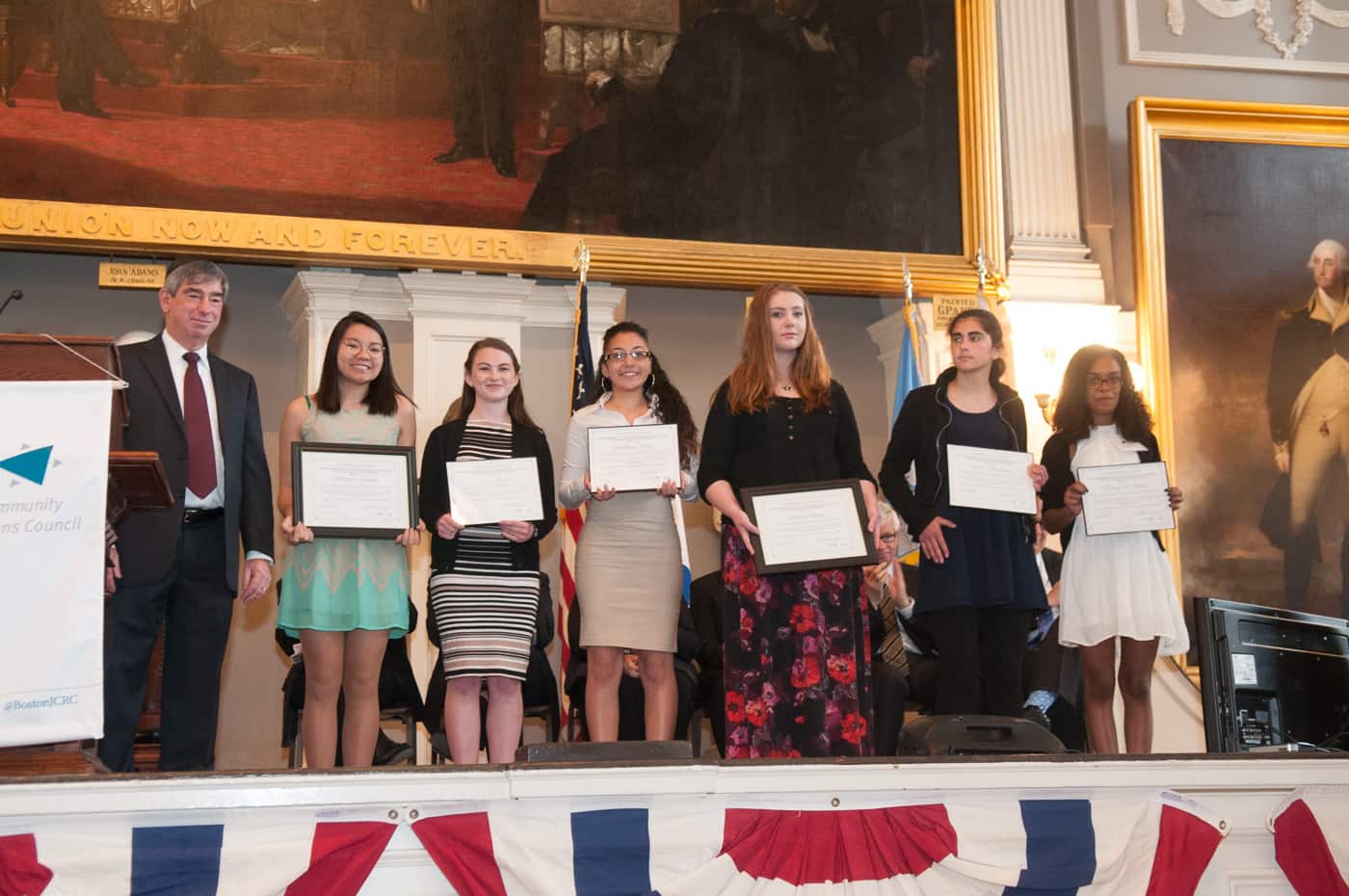Congratulations to the Winners of Our 10th Annual Israel Arbeiter Holocaust Essay Contest

Upper Division
1st: Phuong Nguyen
Malden HS, 11th Grade
Ellsworth Fersch, teacher
2nd: Anne Muise
Medway HS, 12th grade
Neill Brandon, teacher
3rd: Stephanie Ortiz
Stoughton HS, 11th grade
Alexandra Loud, teacher
Lower Division:
1st: Neriah Sullivan
Tenney Grammar School, 8th grade
Thomas Mullings, teacher
2nd: Evita Thadhani
Milton Academy, 8th grade
Sharon Mathieu, teacher
3rd: Eleany DeJesus
Timony Grammar School, 6th grade
Kathleen Stacy, teacher
From Holocaust to New Life: How Will We Remember?
By Phuong Nguyen, Malden High School
“May a new love of humanity be born out of the horrors that we have known.” Israel Arbeiter is alluding to his experience as a Holocaust survivor, but he does not limit the application of this adage to just the Holocaust. To rise from genocide, from any tragedy, people must create a future that qualifies the events of the past.
In the past, great calamities have taught us to extract and shoulder the lessons from them. As Abraham Lincoln in the Gettysburg Address admitted, “we cannot dedicate, we can not consecrate, we cannot hallow this ground. The brave men, living and dead who struggled here have consecrated it far above our poor power to add or detract.” The expectation is not to glorify a wrongdoing, it is not to even try to comprehend the degree of inhumanity committed; our simple task is to relay the meaning and experience of such tragedies.
We must concede that we live fortunate lives today and learn to be grateful. My parents were born during a time of trials in Vietnam. The Vietnam War decimated their homes and forced them to separate from their family and relocate to the countryside. The soundtrack to my mother’s childhood was the sound of bombs dropping in the distance. My father told stories of the countryside’s intense floods that forced his chickens to take refuge on tree branches; at night, he counted dead chickens instead of sheep by listening to their bodies hit the water. I cannot begin to grasp their fear, homesickness and suffering. I sleep on a mattress at night with ventilation in a secure household, my friends are alive, I can contact my parents if I need anything, and at night I never have to wonder if I will still be alive in the morning. It is not within my power to amend their experiences, what is within my power is to give value to my parents’ suffering by taking advantage of the opportunities that have manifested from the past. My responsibility to them is to appreciate the accommodations that they were denied at my age, to take advantage of the education I am given and to enjoy the relief of a roof over my head. As Abraham Lincoln and Israel Arbeiter were trying to convey, we cannot change the past, but we can take its lessons to ensure a better future.
How can average people like me meet the expectations of Israel Arbeiter and do justice to the victims of the Holocaust? Henry David Thoreau once said, “If you would convince a man that he does wrong, do right. Men will believe what they see.” I hold myself to an expectation, as every individual should, to treat others with respect, with care and love, despite disputes and differences. I must compensate for the people of the past that have seen so little kindness. Kindness comes in many forms; it entails speaking up when no one else will, especially when no one else will. I owe it to the muted voices of the past to speak up today. By simply being considerate of others and not taking my freedoms for granted, I will internalize my duty to society and what grievances of humankind have given me this responsibility. The best way to give respect to and progress from the horrors of humankind is to showcase the benevolence of humankind. The execution of our mission entails kindness and acceptance; while this mission seems too explicit and empirical, our accumulative efforts will create change.
The onus of cultivating a “world blessed with peace, understanding and goodwill” has been placed onto this generation’s youths and learners. This expectation unites humankind, regardless of race, religion, ethnicity, gender and other parameters of exclusion. No one can claim to understand the sufferings of the Holocaust victims, but we can remember and honor the Holocaust by creating a future that is more kind. We are mediums to the experiences of the past, and we are the instruments essential to painting a beautiful future.


